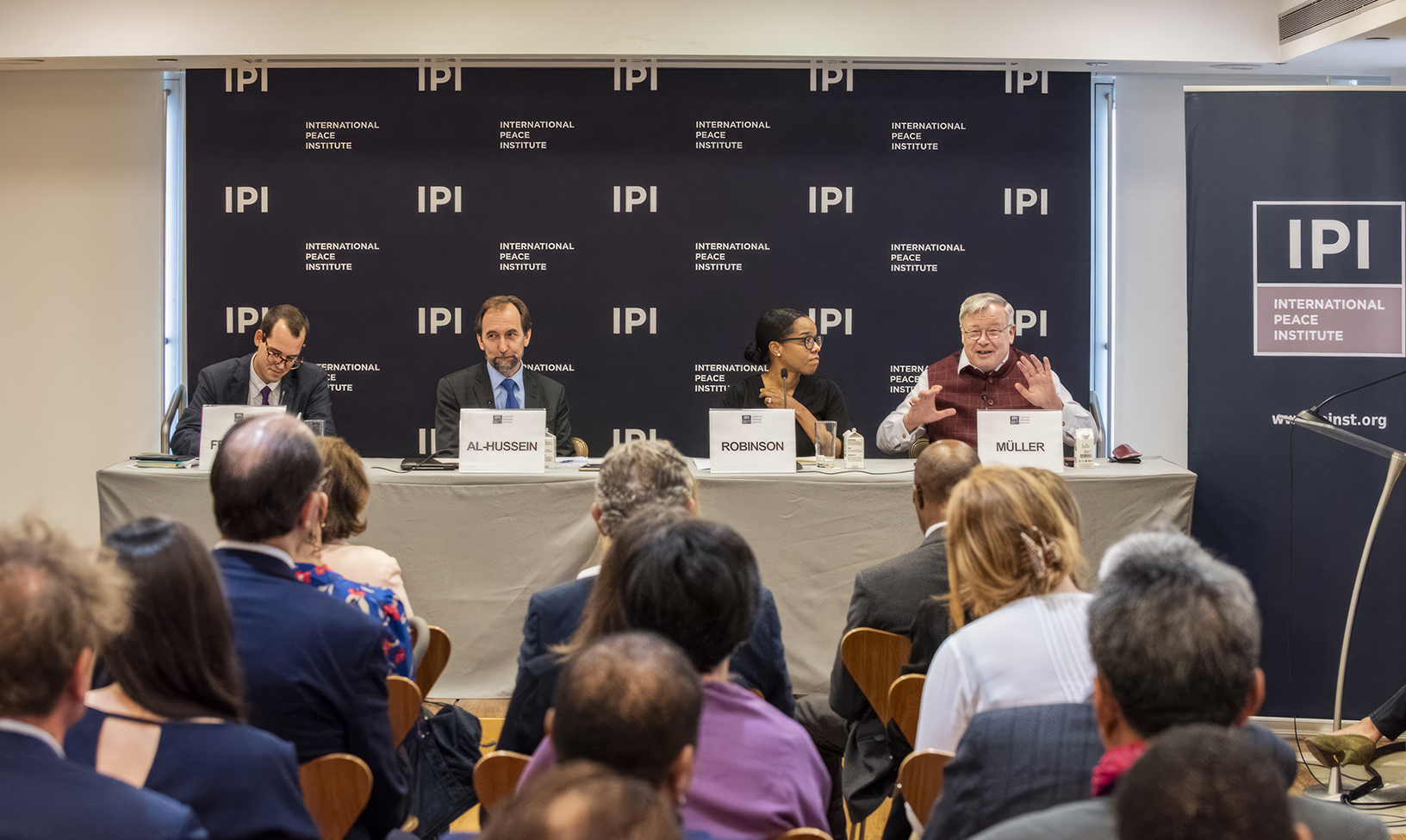
On 30 June in New York, the International Peace Institute (IPI), with Oxford Climate Policy (OCP), organised an event on Innovative Finance for Loss and Damage: Capitalizing the New Fund. During the event, participants discussed deficiencies and shortfalls in L&D funding, underscored innovative ways to capitalise on the new fund, argued that multiple solutions are needed, and presented several innovative options.
Moderator Zaid Al-Hussein, IPI President and CEO, recalling that the decision in Sharm El-Sheikh on L&D financing is one of the most significant developments since the 2015 Paris Agreement, said that Transitional Committee members must design a new L&D fund and help with funding arrangements for L&D in other sectors, such as insurance and humanitarian assistance. He said the TC must prepare recommendations on the new fund and funding arrangements for adoption at the 2023 UN Climate Change Conference in Dubai. He said the aim was to have not just a new fund, but also a new type of fund based on innovative sources.
Michael Franczak, IPI Research Fellow, introduced the option of a shipping levy. According to World Bank findings, he said putting a price on carbon could raise USD 40 to 60 billion from the shipping industry between 2025 and 2050. He said 23 countries and regional organisations declared their support for a levy on carbon emissions on shipping at the Summit on a New Global Financing Pact, held in Paris from 22-23 June, and ahead of a meeting of the International Maritime Organization (IMO), where the proposed levy will be discussed. However, he explained that many developing countries have been wary of tax burden transfers, and noted the need for common but differentiated responsibilities to effectively operationalise a carbon tax levy.
Benito Müller, OCP Managing Director and Director, European Capacity Building Initiative (ecbi), discussed a proposal for international climate solidarity levies and a levy on air travel to finance the L&D Fund, which he said must avoid two scenarios: 1) becoming a placebo fund; and 2) diverting money from other climate funds, such as the Green Climate Fund. He said new funding sources are critical for the “fund to fly”. Reviewing the history of international solidarity levies, he mentioned the French example of an air travel levy for HIV/AIDS, which raised 200 million Euros annually, and where a separate fund was established to collect the earmarked money, which was then given to Unitaid. An initial proposal for such a levy in the climate process was submitted by the least developed countries (LDCs) in 2008, but the top-down approach was not accepted, he explained, noting that the UNFCCC lacks the remit to take such decisions and national treasuries abhor international levies. However, the idea was resurrected in light of the new fund, with the potential for countries to take action on their own without needing to wait for an international agreement. He said if EU countries imposed such a levy, a billion Euro per year could be raised. He said a similar levy could be imposed in the shipping industry by charging 10 Euro per container, with the potential of raising more than 900 million Euro annually. He suggested a climate solidarity alliance of countries that introduce air passenger levies, earmark the money in a separate fund, and then put it in the new L&D fund.
Stacy-ann Robinson, Assistant Professor of Environmental Studies, Colby College, providing a SIDS perspective, affirmed that the conversation about innovative finance for L&D is about livelihoods, and making equity and justice central. She recalled a 1991 proposal by Vanuatu to establish an insurance mechanism to help SIDS deal with L&D. She supported a specialised fund that is fair, dependable, suitable, and feasible. While highlighting the benefits of a levy on airline travel, she said it does not apply the polluter pays principle or consider historical emissions, and questioned how it might impact on the demand for travel and tourism in SIDS. She also suggested a levy on fossil fuel extraction, but said this approach runs the risk of resurrecting colonial relationships where local workers are doing the actual extraction.
Chris Caravan, Senior Advisor, Cygnum Capital, suggested using bonds or frontloading to make the fund’s financing available immediately. He echoed others, saying a coalition of the willing could bear some of the costs of the levies, innovation can include “dusting off ideas from the past”, investing now rather than responding after an event is a more effective way of using resources.
During the discussion, panelists questioned whether asking consumers to act responsibly and pay a levy is letting industry off the hook; stated that the French levy did not affect demand for air travel; agreed that efforts at the international level should continue, but national efforts can start now; and said “let us not make the perfect the enemy of the good” with respect to the fund.
